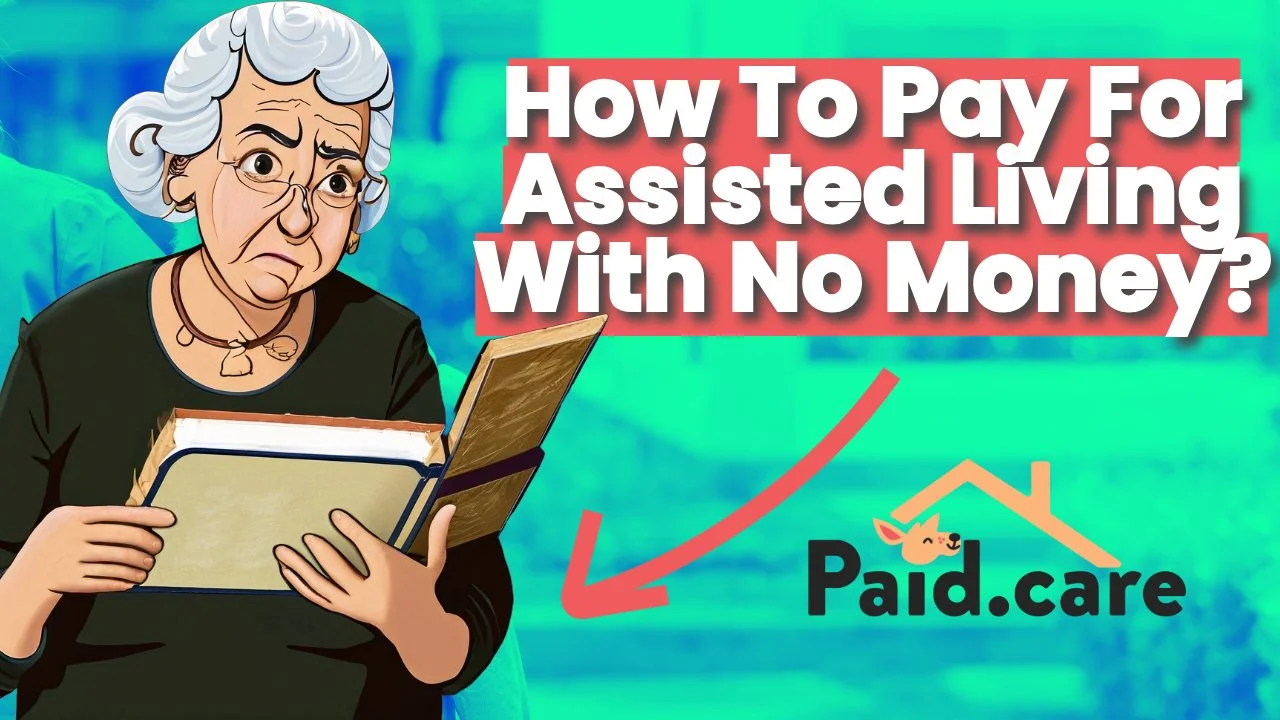How To Pay For Assisted Living With No Money
Discover various ways to cover the costs of assisted living for seniors with limited financial resources.
While assisted living facilities offer valuable support and care for seniors, the costs can be a significant hurdle. Fortunately, there are several options to explore for financing assisted living, even for seniors with limited financial resources. Let's delve into some potential funding sources:
Who Pays For Assisted Living? Medicare Assisted Living Options
(Medicare.gov https://www.medicare.gov/): A federal health insurance program primarily for those 65 and older. While it doesn't directly cover assisted living, Medicare may provide coverage for essential medical services and supplies needed by residents, such as doctor visits, hospital stays, and some prescription drugs. This can free up other resources for assisted living expenses. It's crucial to carefully review coverage details with a Medicare specialist to make informed decisions (https://www.cms.gov/medicare/coding-billing/electronic-billing/eligibility-inquiry).
Medicaid Assisted Living Payments
(Medicaid.gov https://www.medicaid.gov/): A joint federal-state program offering health coverage to low-income individuals, including seniors. Unlike Medicare, Medicaid may cover assisted living costs for eligible individuals, but requirements and coverage vary by state (https://www.medicaid.gov/state-overviews/state-profiles/index.html). To qualify, income and asset thresholds set by your state's program must be met. In some cases, seniors might need to spend down assets. Medicaid can cover room and board, personal care, and some medical services in assisted living facilities. Contact your state's Medicaid office or an elder law attorney for specific eligibility details and coverage options in your state. Applying for Medicaid can be complex, but an elder law attorney (National Academy of Elder Law Attorneys https://www.naela.org/) can provide valuable assistance (consider consulting the National Academy of Elder Law Attorneys for a referral).
VA Benefits
(Veterans Affairs (.gov) https://www.va.gov/): Veterans who served in the military might be eligible for benefits through the U.S. Department of Veterans Affairs (VA) to help cover assisted living costs. The VA offers programs with financial assistance and support services for qualified veterans needing long-term care. One such program is the Aid and Attendance (A&A) benefit, which provides additional financial aid to veterans and surviving spouses requiring help with daily living activities or who are bedridden. This benefit can be used for room and board, personal care, and healthcare services in assisted living facilities. To qualify for VA benefits, veterans must meet specific service, disability, and income requirements. Contact your local VA office or a VA benefits specialist to determine eligibility and explore available options (https://www.va.gov/).
Social Security
(Social Security Administration (.gov) https://www.ssa.gov/): A federal program providing retirement income to eligible individuals. While Social Security benefits aren't designed specifically to cover assisted living, they can still contribute to funding these expenses. Seniors can use their Social Security income towards assisted living costs. Additionally, some states offer optional supplementation programs that provide extra financial assistance to Social Security beneficiaries residing in assisted living facilities. Understanding your Social Security benefits and any supplemental programs in your state is crucial. Consulting with a financial planner or contacting the Social Security Administration can help you maximize your benefits and explore potential funding options for assisted living (https://www.ssa.gov/).
Who Pays For Assisted Living? Beyond Traditional Options
In addition to the programs mentioned above, there are other resources that can help cover assisted living costs for seniors with limited financial means:
Long-term care insurance: Review your policy terms and coverage details to understand what assisted living expenses might be covered (https://www.opm.gov/healthcare-insurance/long-term-care/).
Personal savings and assets: Working with a financial advisor (National Endowment for Financial Education https://www.nefe.org/) can help develop a plan to make the most of your savings, investments, or other assets to cover assisted living costs.
Non-profit and charitable organizations: Research and reach out to non-profit organizations and charities that may offer financial assistance or grants to seniors needing assisted living (https://www.ncoa.org/).
Family support: Open and honest discussions with family members about financial needs can help identify potential sources of support.
Low Income Senior Housing
While there may not be a direct way to cover assisted living costs entirely for those with no financial resources, some options can help bridge the gap. Income-based senior housing, also known as low-income apartments for seniors or income-based apartments for seniors, offers subsidized rent based on income.
These apartments may not provide the same level of care as assisted living facilities, but they can be a good option for seniors who are independent but need affordable housing with potentially some amenities or supportive services. You can find information and apply for these types of housing through local housing authorities or senior centers.
Paid Family or Friend Caregivers
Paid family or friend caregivers can be a valuable resource for seniors needing assistance with daily living activities. Through Medicaid or VA programs, caregivers may receive financial compensation for providing care to eligible seniors. This can help ease the financial burden on seniors who require assistance but may not have the means for professional caregivers. Exploring these programs allows seniors to receive support from trusted individuals while ensuring their caregivers are fairly compensated. Family and friend caregivers play a vital role, and programs like Medicaid and VA benefits can facilitate this important caregiving dynamic.
In Indiana, for example, family caregivers can get paid upwards of $100+/day to care for an age or disabled love one. Learn more here.
It's important for seniors and their families to explore all available options and resources to find the best solution for their financial situation. Consulting with financial advisors, elder law attorneys, and other professionals can provide valuable guidance and assistance in navigating the various funding sources for assisted living.



